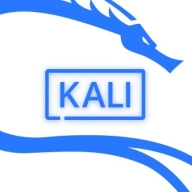

Google Chrome Enterprise and Kali Linux are two different products catering to distinct user needs. Google Chrome Enterprise seems to have the upper hand in corporate environments, while Kali Linux excels in security and penetration testing.
Features: Google Chrome Enterprise offers seamless integration with other Google services, robust security features, and centralized management capabilities. Kali Linux provides an extensive suite of penetration testing tools, open-source nature, and high customizability.
Room for Improvement: Google Chrome Enterprise could benefit from enhanced offline capabilities, more comprehensive third-party application support, and faster updates. Kali Linux could be improved with a more intuitive system for first-time users, better documentation, and improved stability during updates.
Ease of Deployment and Customer Service: Google Chrome Enterprise has straightforward deployment, especially for organizations using Google Workspace, and reliable customer service. Kali Linux is complex to deploy initially, requiring skilled technical expertise, and has varied customer service experiences.
Pricing and ROI: Google Chrome Enterprise is cost-effective for businesses due to its subscription model and integration benefits, offering good ROI for corporate environments. Kali Linux, being open-source, has no setup cost but the ROI depends on the specific security needs and proficiency of the user.
Integrating Kali Linux with DevOps tools has resulted in reduced operational costs due to automated test cases, making it a worthwhile investment with significant returns by decreasing the attack surface area and the frequency of attack incidents.
If we had installed it on-premises or through other means, it would have incurred significant money and effort to create the VMs, deploy it on machines, and then delete and format it after use.
I have saved time by avoiding the lag I sometimes face on the TryHackMe in-built machine, and I have learned more efficiently.
The online support often redirects us to FAQs instead of connecting to a real person.
There could be more detailed guidance on new installations like Google Authenticator, as the process is often vague and lacks fine-tuned information.
There are features regarding QR code setup, compatibility, and security.
Since most of the tools and other things are community-based, the documentation and other community support are very good.
I was able to solve the problems I was experiencing.
Firefox is slightly more efficient as it uses less memory.
I would just need to move the container I have set up on Cloud Run to a VM or cluster, which could be straightforward.
You can use it on cloud, VPS, and on-premises.
Regarding the scalability of Kali Linux for my work and projects, whenever I was conducting brute force attacks and provided more than two or three million lines of payload, the system would freeze.
I find Kali Linux very scalable.
I consider Google Chrome Enterprise to be both stable and scalable.
Google Chrome Enterprise is stable, and I haven't faced any stability problems.
Kali Linux is stable for my use cases, though not the latest version.
Kali Linux is very stable for my needs.
In my experience, Kali Linux is quite stable.
If we have a laptop with basic configuration, it eats up a lot of RAM and slows down the system.
This causes hesitation in installing them due to concerns about hidden costs and inadequate information.
Regarding Google Chrome Enterprise improvements, they need to declare some security details; they are applying security but not publishing the details about the security applied.
If real-time customized port scanning can be added, for example, instead of a default port such as 8080 or 443, if we can use a customized port such as 9876, that capability would be great.
I face significant challenges with Kali Linux regarding a major issue with the Grub loader becoming corrupted, which makes it very difficult to recover data.
Making Kali Linux more customizable would allow users to personalize it to their style.
It's a bit on the higher side, but we prefer to stick with it because of the security, ease of maintenance, and the company's reputation.
The interface is optimized in terms of the UI and user experience.
Kali Linux is free software, an operating system that's available to download without any cost or licensing fees.
I simply create a VM, so there are no costs involved.
My experience with pricing, setup costs, and licensing for Kali Linux has been positive, as it operates under an open-source model.
The best aspects of Google Chrome Enterprise are its compatibility with everything, smooth management, and frequent security patching, which I find nice to use.
The security it offers is an advantage, which is crucial for us due to HIPAA compliance concerns.
Google Chrome Enterprise is my preferred browser over Firefox and Microsoft Edge.
Kali Linux has positively impacted my organization by improving efficiency in penetration testing; its open-source nature permits extensive customization and inclusion of numerous comprehensive pre-installed tools, contributing to a secure network environment with effective monitoring of network applications.
A unique and really helpful feature of Kali Linux, compared to other operating systems, is that many of the offensive security tools are already pre-configured and pre-installed.
Kali Linux positively impacts my organization by allowing us to monitor changes and security posture for the company.
| Product | Market Share (%) |
|---|---|
| Kali Linux | 3.2% |
| Google Chrome Enterprise | 0.6% |
| Other | 96.2% |


| Company Size | Count |
|---|---|
| Small Business | 8 |
| Midsize Enterprise | 4 |
| Large Enterprise | 13 |
| Company Size | Count |
|---|---|
| Small Business | 10 |
| Midsize Enterprise | 2 |
| Large Enterprise | 16 |
Google Chrome Enterprise combines Chrome OS and Chrome Browser to enable work in the cloud. Manage users’ access to data, applications, and extensions without breaking a sweat. Work securely from anywhere, on any device. Your data is kept safe in the cloud.
Kali Linux is widely used by organizations for penetration testing, vulnerability assessments, web application security, network audits, ethical hacking, and open-source intelligence, providing extensive free features.
Organizations run Kali Linux in virtualized environments alongside other operating systems, employing tools for automated scans, malware identification, infrastructure testing, and application development or hosting. These users benefit from lower maintenance requirements and a smaller footprint. The toolset includes Nmap, SQLMap, Metasploit, and Hydra, ensuring effective security assessments. Its high scalability, performance, user-friendly interface, and extensive documentation enhance the platform's usability. Known for stability, flexibility, and virus resistance, Kali Linux supports web security, troubleshooting, and configuration tasks comprehensively.
What are the most important features of Kali Linux?
What benefits and ROI should users look for in reviews?
Kali Linux can support industries in improving security through stable and flexible environments that resist viruses and provide extensive documentation. Users employ it for web security, troubleshooting, and configuring capabilities. Necessary improvements include automation, user-friendliness, and integrating AI and blockchain. Enhancements in security features, faster installations, and better learning tools are also essential. Machine learning integration and non-enterprise user functionalities can address current limitations.
We monitor all Operating Systems (OS) for Business reviews to prevent fraudulent reviews and keep review quality high. We do not post reviews by company employees or direct competitors. We validate each review for authenticity via cross-reference with LinkedIn, and personal follow-up with the reviewer when necessary.